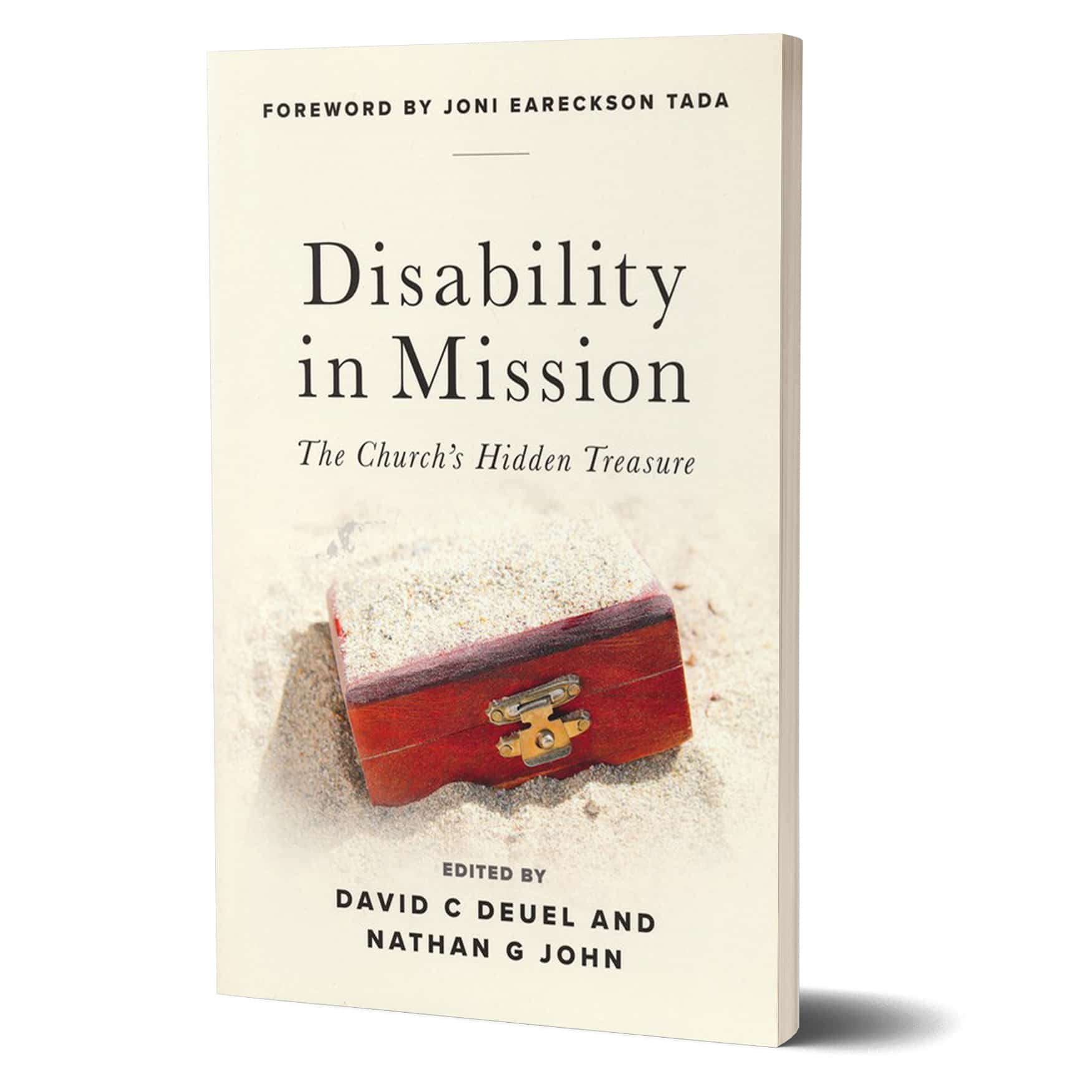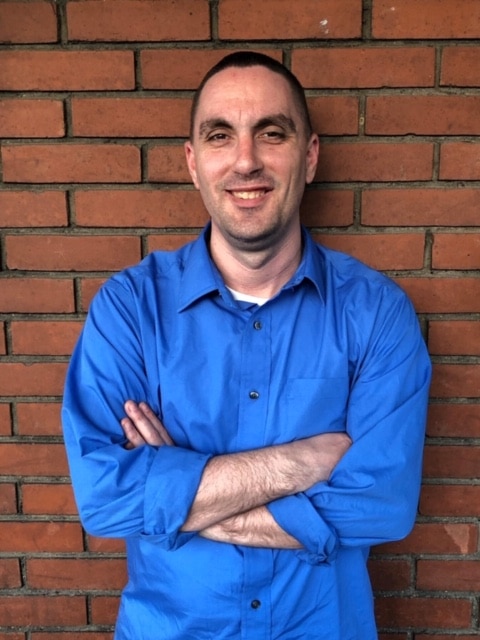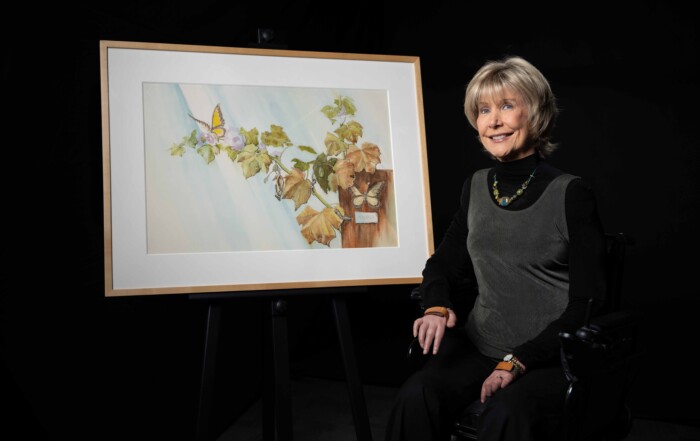Writing a Different Story: A letter to the Mission Board
It is commonly assumed “a picture is worth a thousand words,” but what happens if that picture can’t be seen?
For someone who is blind, a picture has no value. True, for someone who is deaf or for someone needing a wheelchair, a picture should still be beneficial. But the point is this:
The “able-bodied” culture often forgets that those with disabilities see and experience the world quite differently.
This difference includes how we live out our Christian faith. Likewise, the nondisabled and disabled communities will inevitably have different ways in which they join Jesus in mission. Lines are drawn in every facet of our society – race, intellect, class, politics, personality – we divide ourselves in every way we possibly can. But what about disability?
Is this a problem too for mission boards and sending agencies? Do able-bodied folks and people with disabilities stand on opposite sides of the dividing line?
Listen to this open letter from one mission leader who happens to be blind. As you hear his heart, please envision how God would have us renew community on mission together.
Dear Mission Board,
Most of you like me. We have spent time together, and you tell me how engaging I am in conversation. You have gotten comfortable with me and are even beginning to joke that I don’t look blind or seem like I have a visual disability. You can sometimes lament that it is almost like you are talking to a normal person. Thank you. Normal is what I was going for.
Many of your slogans, mission initiatives, and strategies revolve around ministering to the marginalized. “We want to serve the poor. We care for those who are oppressed. We love the overlooked,” you say. I applaud this desire, but what do you do when the marginalized of society sits before you, desiring to be sent out to the mission field? I understand it’s easy for fear to slip in when trying something new. Numerous times in Scripture, God’s people have responded in fear instead of faith when presented with a paradigm shift in thinking. In the same way, it takes courage to move beyond viewing me as a mere recipient of mission. Do you have the imagination and foresight to believe that I could thrive as a participant in mission? I hope you do because the Lord has called and commissioned me to take the gospel to the world.
Perhaps you have never met a blind person or had a ministry relationship with someone who is disabled. What should I say to them? How do I talk to them? What happens if something doesn’t go smoothly? These questions are a common occurrence that I receive when people talk about engaging the blind. This is compounded by a mission board considering me for mission service. “Oh, but I don’t want him to feel uncomfortable,” you say. “I am concerned you won’t be able to do this.” You have a lot of fears about me. Again, I understand fear, but sometimes, we just have to take a deep breath and breathe. In faith and love, welcome me the way Jesus told us to welcome all to the banqueting table.
I understand that I live in a world made for the sighted, not for the blind. Sadly, I am reminded of this every day, and almost daily, someone asks me what I can see. Honestly, such questions are exhausting. I don’t know if this is realistic, but I long for the day when the community of the king, the church, begins to write a different story. No doubt there are so many sectors of society that have nailed it when it comes to inclusion and welcome. Without hesitation, I can say I have ventured into such places.
I wonder, though, if accessibility and accommodation is really the point of Jesus’ message on disability. Can communities of Christ in rural Nepal or the jungles of the Amazon who have no understanding of disability rights or any experience with all the helpful gadgets be fully inclusive? This can’t just be about American disability policy or being current. I don’t just want accommodation; I long to join Jesus on mission with you. I am asking you – honestly, yet boldly asking you – to live out what you have been proclaiming. As a mission leader, I know what radical welcome looks like. I have tasted the sweetness of no more “us and them.” However, as a “blind guy” in the mission community, I have rarely seen or felt such unity. I have felt welcomed, but rarely have I felt equal. Is it too much to ask that all our hands are in the pile together and that there is a seat at the table for me?
I am speaking in general terms because I think you may be struggling to understand my main challenge – my main point. Braille handouts, emailing slide shows, describing what is on a screen – yes, such practices are helpful – but you tend to think of such solutions first. They aren’t bad ideas at all, but for many disabled in your communities, it is not pragmatics that will ultimately form us for mission. There are advocates all around the world who have rattled the cage for these kinds of solutions, and I applaud them. What I hope you gain from hearing me out in this letter is a shift in ethos. I don’t just want to be accommodated and protected. I don’t just long for your programs to be easy for me to access. I want to be on mission with Jesus with you. Do you think you have the courage to walk with me to see that happen?
Disabled scholar and ministry leader Miriam Spies calls for the making of space for people like me when she writes, “There needs to be an intentional creation of space. It is not about moving those from the margins to the center but transforming how we understand the center and power. And with that, we all grow in identifying ourselves as disciples participating in and offering leadership in God’s mission.”
I am humbly asking for space to be made. I know it is not intuitive or effortless to do so. Mission never is. And ultimately, we both know that this is not mostly about me. It isn’t even mostly about all the disabled or marginalized people who will become part of your community. This is about Christ and his kingdom. Together, we have a chance to get this right and reflect the matchless kingdom of God to the world. Truly, you have made so much progress. Even in my lifetime, I have watched things dramatically shift. In the past, I was the guy everyone needed to see healed, so I could feel like a whole person. Now, the dial has moved towards over-protection and not wanting to do the wrong thing. Your love and heart are not the problem. You have shown me again and again that your heart is in the right place. Do not be discouraged by my tone, but I am weary – many on the margins are weary. We want someone to listen before espousing solutions.
In The Bible, Disability, and the Church: A New Vision of the People of God, Amos Yong reminds us that it is not the disabled themselves who have such an issue with their disability. It is often the constant reminders they receive from the broader culture that they somehow don’t belong or that they are in need of being rightly put together again. I am pleading with you not to make this assumption but to work with me hand-in-hand to announce and demonstrate Christ in your community. I am up for it. Let’s soar together, and if we fall, we will fall together. But please, please don’t relegate my contribution in the body of Christ to be one of sitting on the sidelines simply because you are uncomfortable or are unsure what the outcome will be.
On behalf of my disabled brothers and sisters who long to be on mission with you as full participants, I don’t have a long list of suggestions to make. Many people in your community have already figured out accommodations to make our lives a little less stressful. You can take a visit to local businesses and corporations to learn some of the beautiful ways they are making things accessible for the disabled. Surely, we have a long way to go even with these cosmetics, but I think the issue is more than cosmetic. It is spiritual. The cross and mission of Jesus must be accessible. I am asking for a kingdom vision.
- We are all image bearers of God. “Then God said, ‘Let us make humankind in our image’” (Gen. 1:26 NET). If you do not give us a chance to lead, serve, and attempt things for the Lord through the local church, we are robbed of our God-given design to be image bearers.
- As parts of one body, each of us is a necessity. “The body is a unit, though it is made up of many parts and though all its parts are many, they form one body. So, it is with Christ. … those parts of the body that seem to be weaker are indispensable” (1 Cor. 12:12, 22 NIV). I know you know this, but would you dare to imagine with me that those on the margins can be indispensable contributors of God’s mission and not merely recipients of benevolence?
- Christ established a new humanity at the cross. The imagery of no more “us and them” is so powerfully penned in Ephesians when Paul speaks of none of us being strangers or foreigners any longer. We are all part of God’s household; we are God’s family (Eph. 2:19-20). Regardless of your choice to hear this plea or not, it will not change the facts. We are all part of God’s family. With your influence and position, would you jump in on what God has already revealed in this upside-down kingdom? Or more accurately, his right-side-up kingdom? It is only upside-down from a worldly perspective.
Brothers and sisters (that is truly who you are to me), there is a lot at stake. The very nature and integrity of the mission of Jesus is on the line if we are not all participants. Jesus has invited me to the table. Will you?
May we be able to join in profound and breath-taking ways to see the magnificence of Jesus roll through our communities. I care for you and believe you have the courage to push this forward. Let’s join together to build the kingdom of heaven as Christ intended.
With hope,
Your brother and friend who happens to be blind.
Written By—John D. Trotter
John Trotter is Lead Teacher at Global Frontier Missions training cross cultural workers to serve the unreached and doctoral student at Fuller Theological Seminary writing on disability in missions.
Edited by David C. Deuel & Nathan G. John

Disability in Mission
Disability in Mission: The Church’s Hidden Treasure outlines a radical change in approaches to missiology, missions, and praxis for the twenty-first-century global cultural context. It explores a pattern whereby God works powerfully in missions through disability and not in spite of it.






